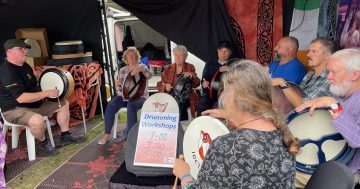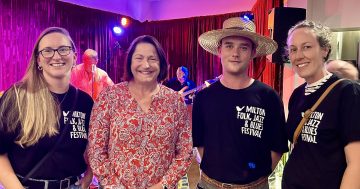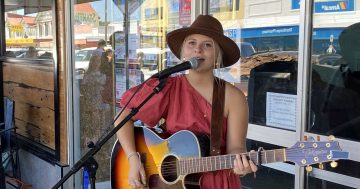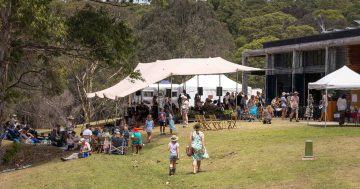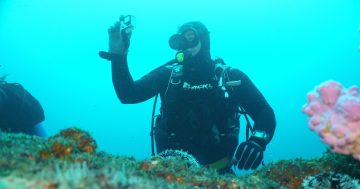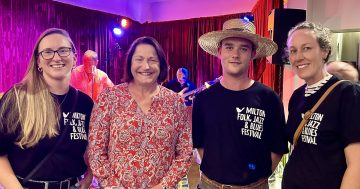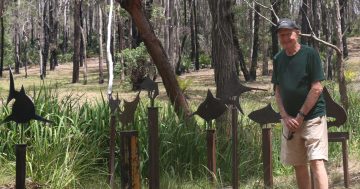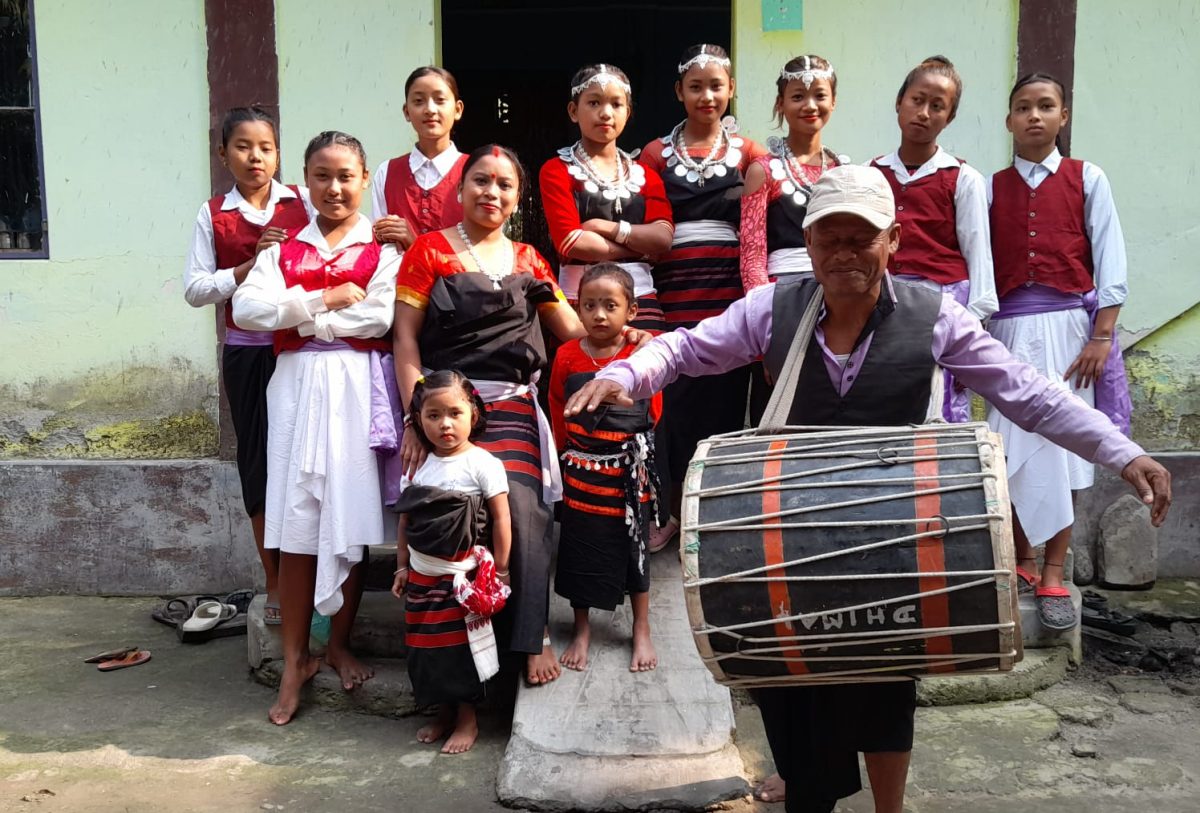
There is a growing community of Himalayans on the Far South Coast and elsewhere in Australia. Photo: Supplied.
Why are the organisers of the Himalayan Ethnic Singing Competition calling for entries from Australia?
There is a rapidly growing diaspora of Himalayan people here. For example, the number of Nepalese living in Australia increased by 123 per cent between 2016 and 2021, making them Australia’s 10th-largest migrant community.
Zena Armstrong, director of the Cobargo Folk Festival, said the 2025 festival featured two Himalayan acts reflecting the growing Himalayan and South Asian community in the area.
“We are working to introduce more music, dance and stories from that region,” Ms Armstrong said. “It’s so rich and wonderful.”
Singer, songwriter and instrumentalist Deoashish Mothey met many Himalayan people when he toured Australia in 2018 and 2019 with cross-cultural band The Three Seas.
It is the second time the Himalayan Ethnic Singing Competition is being held. The first was open to communities in Sikkim and Darjeeling. This time it is going global.
“After the success during the pandemic, especially with the children getting involved, we thought we would do it again,” Mr Mothey said.
Entrants send two- to three-minute videos to WhatsApp on +91 76798 42361. Entry is free, open to all ages, and closes on 20 December.
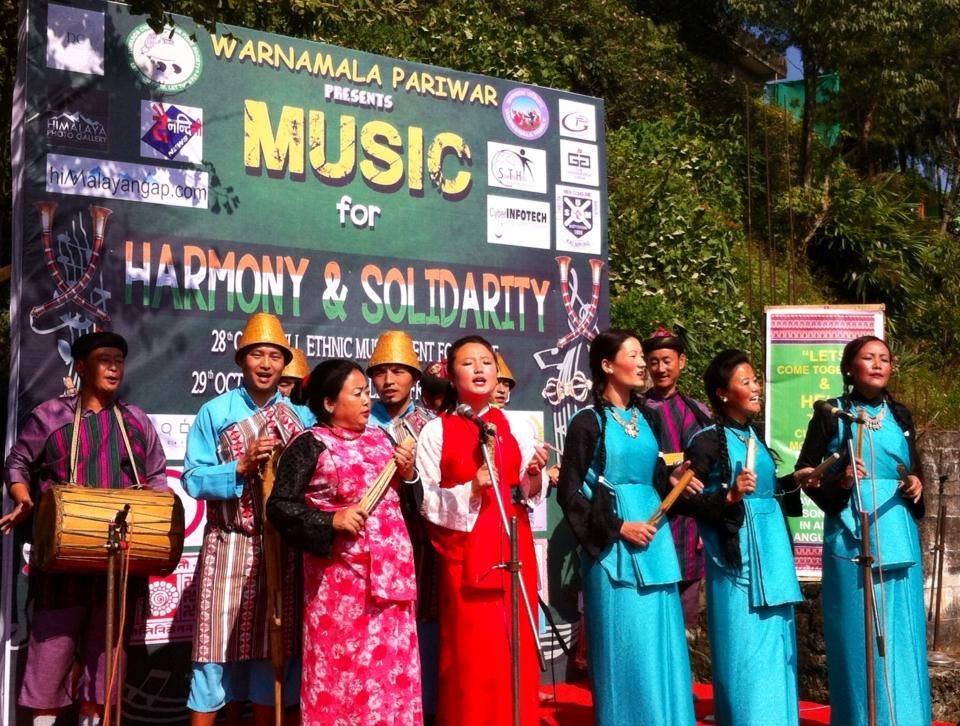
The Himalayan Ethnic Singing Competition is being run by not-for-profit Warnamala Pariwar which works to preserve culture and conserve nature. Photo: Supplied.
The competition is one of several projects Mr Mothey does through Warnamala Pariwar, a not-for-profit he founded in 2005.
He grew up in the tea plantations of Darjeeling and attended an English high school.
Starting university, he found he was very weak in his own language. He had also struggled to learn the Nepali alphabet as a child.
“I didn’t want children to face the same problem that I had and when I saw all the resources around me at the university, I conceptualised the idea of animated films for children to learn the alphabet,” Mr Mothey said.
That was the beginning of Warnamala Pariwar, which roughly translates to ‘alphabet family’.
It was a natural progression from his teens when he regularly returned to his old primary school to teach children through songs and written music. “It was traditional poems and I converted them into rhymes.”
Mr Mothey grew up with a diverse range of communities in the Indian state of West Bengal. “I was always fascinated by their language and cultural dress, but now those languages are on the brink of extinction.”
His Nepali alphabet book, animations and games were nominated for the Japan Prize in 2016. Jury members suggested he did something similar for those languages that were being lost.
Mr Mothey needed a lot of information about the language, music, and instruments. He thought a singing competition was a great way to get it. “One song tells a lot of stories,” he said.
That is one reason he is running this competition. “Everyone is into Korean pop. I want to draw Himalayans’ attention to this which has so much wisdom and beauty,” Mr Mothey said. “This gives them a sense of belonging.”
Warnamala Pariwar is also involved in conservation.
It works with the School of Governance and Policy, a United Nations program about climate change, that is teaching policymakers about sustainable policy, as well as India’s Association of Conservation and Tourism, which is promoting responsible tourism in the Himalayas where overwhelming tourism is choking rivers with plastics and other pollutants.
“We also initiated this competition to raise awareness about keeping rivers and streams free from plastic and waste,” he said.
Warnamala Pariwar is going into schools and doing public performances, teaching people not to throw waste into the rivers. It wants to spread that message throughout the Himalayan region.
Mr Mothey, who plays five instruments, is a founding member of The Three Seas Band that formed in 2011. It blends West Bengal grooves and Australian jazz flair. It is led by Australian composer and saxophonist Matt Keegan. The band’s fourth album, recorded in the UK, will be released early next year.
The band is growing the musical ties between Himalaya and Australia.
Ms Armstrong wants to do the same after a chance conversation with a Bhutanese taxi driver in Canberra.
“He told me how much he missed sharing celebrations and festivals with his family and community back home,” Ms Armstrong said.
“The focus of the competition is on language preservation and continuation, and the transmission of traditional song and story,” she said. “That ties in really well with the objectives of the Cobargo Folk Festival.”
Mr Mothey said the winner of the Pan Himalayan Ethnic Singing Competition would perform with The Three Seas Band and record a song with them. They are also looking at providing an international platform and have them perform at festivals like the Cobargo Folk Festival.







